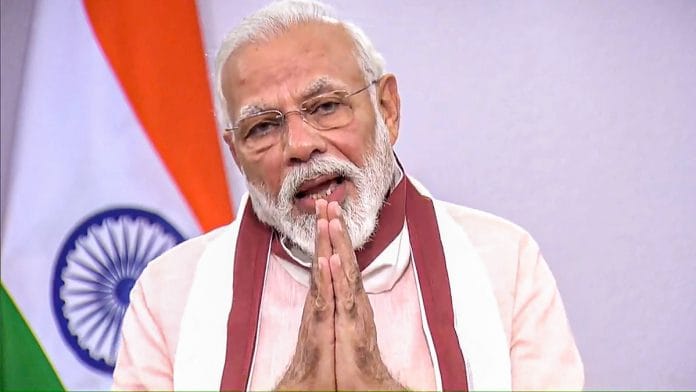Reforms the farmer needs
Mekhala Krishnamurthy | Senior Fellow at the Centre for Policy Research
The Indian Express
With Finance Minister Nirmala Sitharaman enacting a new central law that overrides existing state laws restricting farmers from selling to anyone without an APMC license, Krishnamurthy says that’s not enough. Stating that there are still not enough mandis in the country, which is why farmers sell outside, she argues, “The problems farmers face are not only a result of vested, monopolistic interests, but are rooted in larger structural conditions that significantly weaken their terms of engagement in agricultural markets. The former may be addressed by regulatory intervention. But the latter will need location-specific policies, well-directed investment, and well-functioning agricultural institutions.”

The lockdown has highlighted stark inequalities
Zoya Hasan | Professor Emerita, Centre for Political Studies, JNU
The Hindu
On India’s stringent lockdown that was imposed with just a four-hour notice, Hasan argues that “Instead of embracing the welfare state path, the BJP government is encouraging greater privatisation.” Stating that the lockdown protects only the “balcony class”, Hasan underscores the social inequalities that have deepened with the implementation of strict restrictions. Hasan dismisses the Rs 20 lakh crore fiscal stimulus as “too little too late”, and states it pushed for “greater privatisation and further opening the economy to foreign capital.” Underscoring the importance of an urban employment guarantee scheme and cash transfers, Hasan says “we need a more humane government responsive to the basic needs of its people.”
On economics, the Sangh and the PM are united
Rajiv Tuli | Member of the RSS’s Delhi state executive
Hindustan Times
Emphasising that “The RSS is deeply committed to the idea of swadeshi. The PM’s focus on self-reliance is a step in the right direction,” the author writes that with organisations such as the Bharatiya Mazdoor Sangh, the Bharatiya Kisan Sangh and the Swadeshi Jagran Manch, efforts to realise the idea of self-reliance are already being made. Stating how “the swayamsevaks are engaged in several services to help all Indians, irrespective of differences, who are vulnerable at this time”, Tuli ends by noting “we must move towards a new nature-based self-reliant society and governance.”

Building Atmanirbhar Bharat: It is about channelling India’s strengths and should not be misconstrued as protectionism
Soumya Ghosh | Group chief economic adviser, State Bank of India
The Times of India
On PM Modi’s call for a self-reliant India, Ghosh said we must not confuse it for protectionism when it is actually “a demand-based economy system, which is self-producing and self-consuming.” The five pillars for a self-reliant India include the economy, infrastructure, system, vibrant demography and demand. Stating that economic policies in the past have always been met with conflicting opinions from experts, he notes, “The objective of Atmanirbhar Bharat will now require at least a double digit growth rate over a period of 10 years to not just regain lost ground but also build resilience in the economy to cope with such shocks.”
Between a stimulus package and a hard place
Ashok Jha | Former finance secretary, Government of India
Business Standard
While the lockdown has led to some success on the health front, the author wonders if adequate steps have been taken to revive the economy. He comments that the five-part stimulus package announced by the finance minister did not meet expectations. He adds that their immediate impact on alleviating the present economic distress will be minimal and the beneficial effects will be felt in “medium to long term.” The government has already expanded its market borrowing and states have been given the space to expand their fiscal deficit up to 5 per cent of the GDP, he says, adding “The finance minister has little freedom to go for a larger stimulus, so “keeping the powder dry is not a bad idea”, he notes.

India, with 82% of the population below 50, is best placed for herd immunity
Neeraj Kaushal | Professor of social policy, Columbia University, US
The Economic Times
The author writes that vaccination and herd immunity are the two ways to control the coronavirus pandemic, and in the absence of the former, India is best placed to try the latter. Developing countries might have to wait for their turn to get a vaccine for all of their population and Covid is likely to be with us for a few years, but herd immunity can be acquired quicker. With 82 per cent of its population below 50 years of age, India is ideal for developing herd immunity, author notes, which will “improve the chances of surviving Covid with much less damage to lives as well as livelihood”.

An NPS would have stopped migrant exodus
Gautam Bhardwaj | Co-founder, pinBox Solutions, Singapore
Sanjay Jain | Partner, Bharat Innovation Fund
The Financial Express
The authors observed that if migrant workers had adequate savings, they might not have decided to walk back home on foot for being unemployed. Therefore, a National Pension Scheme (NPS) account would have allowed them to stay for another three to four months during the lockdown. With nearly 400 million Jan Dhan accounts, 500 million smartphone users and 100 million UPI users, NPS would have been one of the most efficient pension system, they note, but most of the migrants aren’t eligible for pension or any other social safety net. The authors also suggest that we need strong political leadership and regulatory support to “overcome current friction and KYC barrier to comprehensive pension and saving inclusion – a giant step towards a truly atmanirbhar Bharat.”
Don’t complicate the PF in the name of reform
S Murlidharan | Chartered accountant
Hindu Business Line
The provision for employers to contribute to PF (provident fund) up to 10 per cent and not more, is unjustified, the author notes, as the employee is free to contribute more, but the employer shall contribute only 10 per cent for these three months. “The PF is a post-retirement war chest. An employer contributes to it by way of deferred wages, so that one gets a tidy sum during the rainy days. The government announcement says that around 4.3 crore employees would benefit by way of higher take-home pay thanks to this reduction. This is a perverse world-view, worsened by by the government’s attempt to pass it off as part of the ₹20-lakh crore fiscal package,” the author writes, adding that employers could have been asked to contribute the backlog after six months, when they would have recovered.







